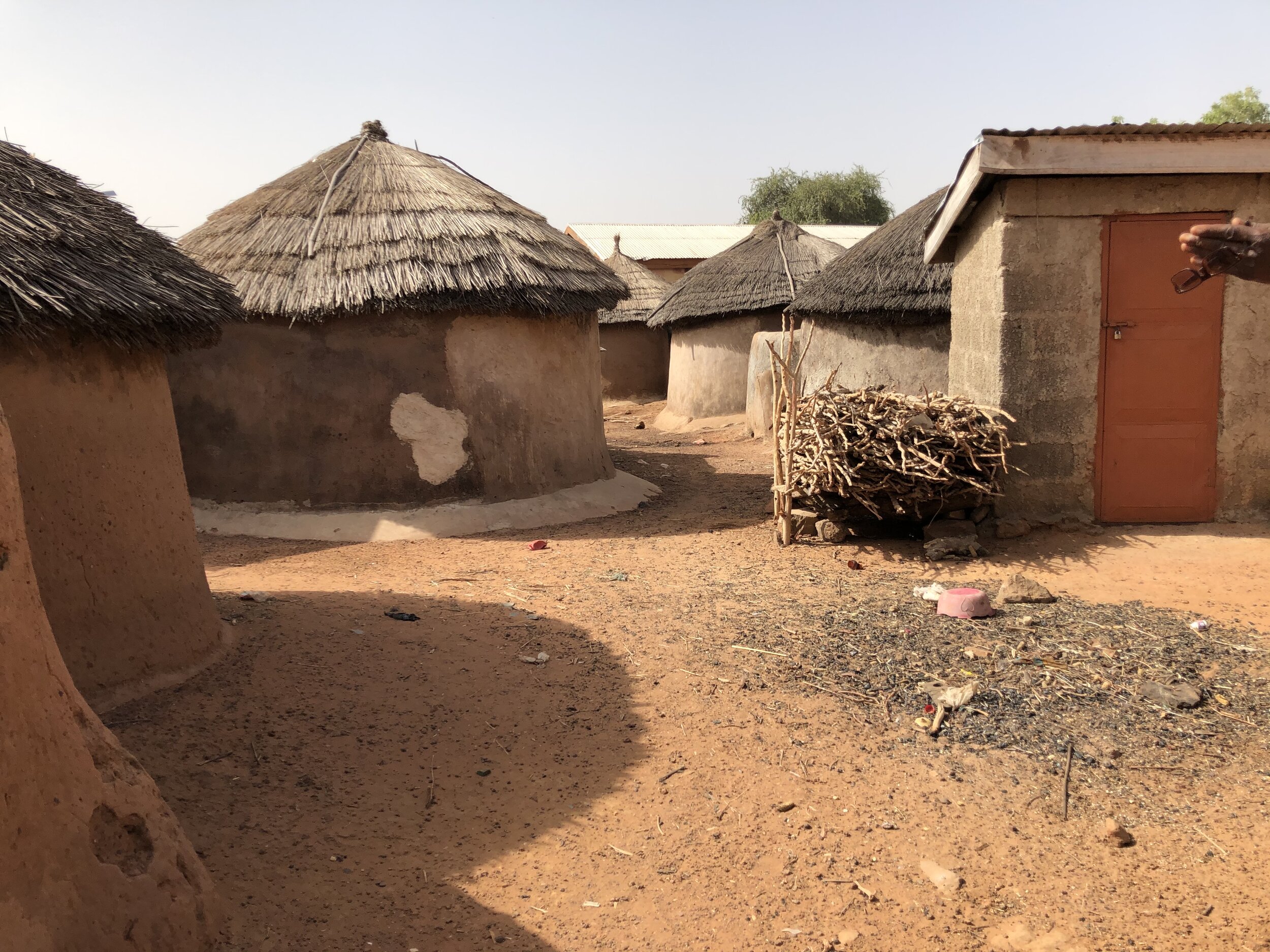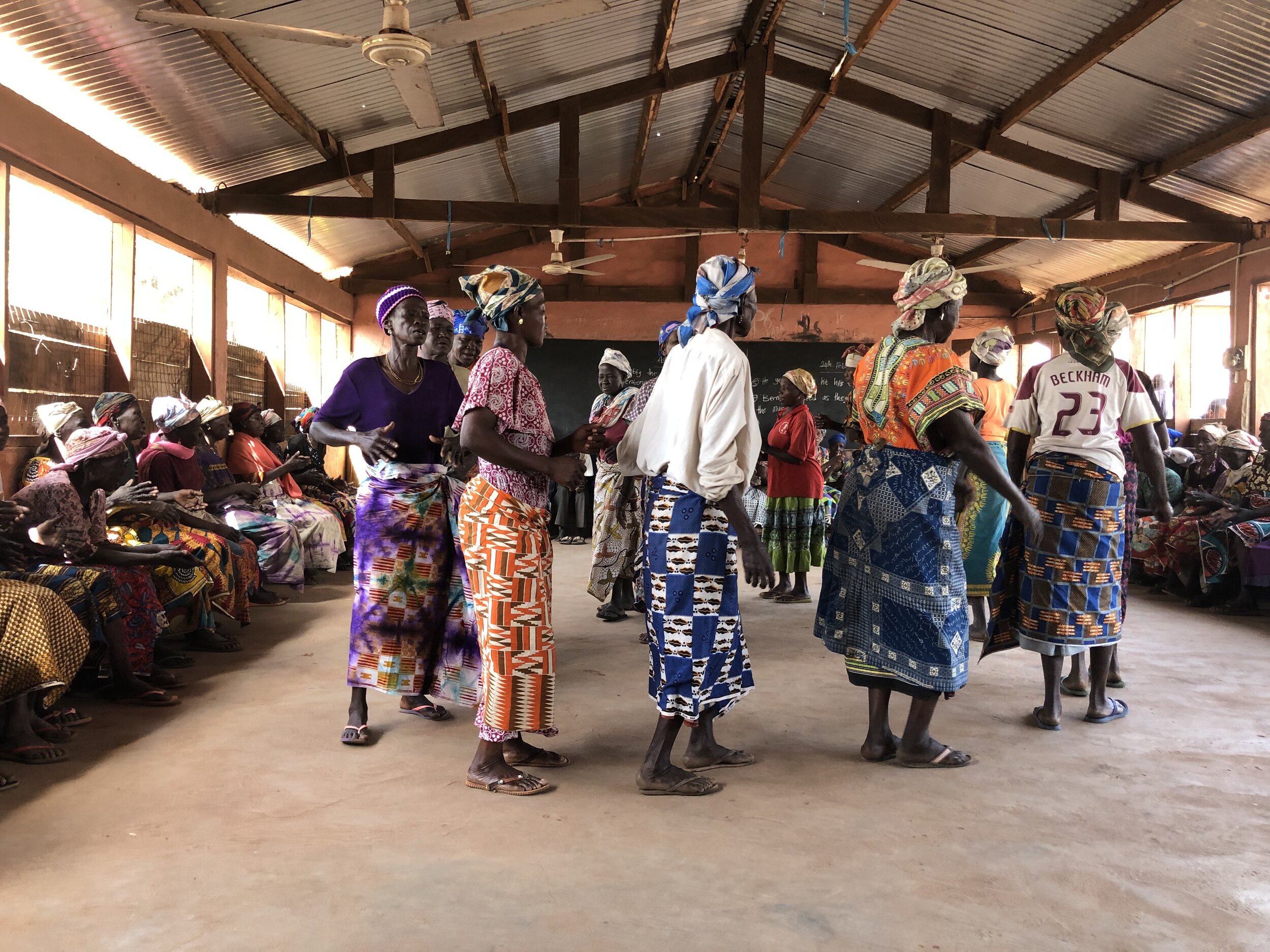Ghana # 5: Operation Go Home - Gambaga Outcast Project
by Jeff Ritchie, for the team
We arrived at Bolgatanga, the headquarters of the Upper Presbytery of the Presbyterian Church of Ghana, Monday afternoon. After a brief orientation to the work of the Presbytery by the Chairman, the Rev. Emmanuel Atami, they offered us a choice of what we would like to see in the one day we would have with them. We chose to see the social projects of the Presbytery, as we had had a good introduction to church planting and training ministries in the Northern Presbytery.
The following day, we left our hotel at 7:00 AM, returning at 6:00 PM. Following supper, we left again for an evening service that lasted until 9:30 PM. It was a marathon day! But one of the visits stood out above them all, the Gambaga Outcast Project, also known as “Project Go Home.” It moved us deeply, and we want to share it with you.
In much of African culture, there is a deep-seated belief in the power of spirits to help or harm life. In villages in northern Ghana, when something bad happens—death through a mysterious sickness, barrenness, mental illness, even bad dreams—a woman is sometimes blamed for causing the misfortune through practicing witchcraft. As an alleged witch, she may be beaten to death if she does not flee for her life—even her family cannot save her from the community’s wrath.
Over several decades many such women have fled to the village of Gambaga where there is a chief who is thought by traditional religion adherents to have great power over spirits. This chief has provided a refuge for them and shelter for such women. The Presbyterian Church of Ghana has taken up the cause of these women, who like the lepers in Jesus’ time, are outcasts from their own people. While the chief gives them a place to live, the church has helped them live in that place. They have fields to grow crops, simple homes to live in and work they can do to earn money such as bead-making and soap production.
The church has also become their advocate in seeking to reconcile them with their communities. Samson, the social worker who gave us the briefing on the ministry, told us that eighty-four of these women, whose average age is 62, have been reconciled with their village and have returned home. Yet people continue to come, and there are currently eighty-two women and one man in the Gambaga Outcast Village.
Samson was particularly concerned to share with us that last year’s rains were not sufficient, and the crop yield of the women was only ¼ of what it had been the year before. He simply did not know how the women were going to eat. The Presbytery representatives accompanying us told him that they would be visiting Gambaga in a few days and would bring food. But more would be needed to supplement the meager harvest.
We left Gambaga with our hearts touched. This ministry of mercy was only one of many very fine works of the Upper Presbytery. Its agriculture division has an excellent sorghum project with farmers that has led to a contract to supply a major beverage company with the grain they need for their non-alcoholic malt beverage. The Presbytery operates a 388-bed hospital in Bawku, and its chaplain, the Rev. Roger Wegurih, was our guide throughout the day.
He summarized well what we experienced this day: “Matthew 25 is the cornerstone of all that we do in the Upper Presbytery.” We saw Jesus in the lives and actions of his people in northern Ghana touching the outcast, healing the sick, and enabling farmers to earn a livelihood.


